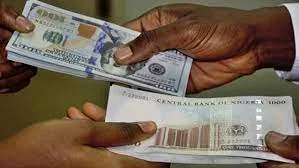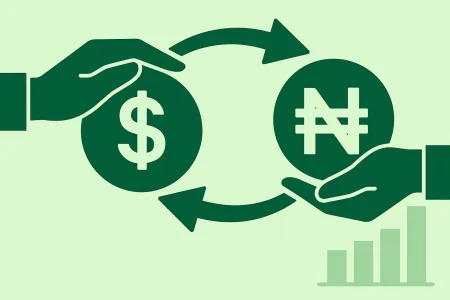
In a dramatic turn of events, the Nigerian Naira experienced a lightning-fast appreciation against the United States Dollar within a matter of hours in the Peer-to-Peer (P2P) market. Traders and economists were left astounded as the Naira's value soared, marking an incredible gain of N166 against the Dollar.
On Thursday evening, the Naira hit a peak value of N1279/$, creating a buzz across financial circles. However, as of the latest reports, the Naira had settled at an astounding N1113/$, confounding traders and sparking widespread speculation.
Market observers have suggested that the remarkable gains might be attributed to the scarcity of buyers willing to engage at the higher exchange rate of around N1300/$. This cautious approach by potential buyers appears to be driven by a belief in the Naira's potential for further strengthening.
Adding to the intrigue, Finance Minister Wale Edun revealed that the country was poised to receive an influx of $10 billion in foreign currency over the next few weeks. This influx of foreign currency is expected to enhance liquidity in Nigeria's foreign exchange market, which has been a significant hindrance to the country's economic growth.
Minister Edun further disclosed that President Tinubu had recently signed two executive orders. The first permits the issuance of domestic financial instruments denominated in foreign currencies, and the second facilitates the transfer of cash currently held outside the banking system into banks. These measures are aimed at addressing the ongoing issues in the foreign exchange market.
Traders, especially speculators, appear to have taken these developments to heart, leading to the decision to sell at lower rates to avoid potential losses. The prevailing sentiment suggests that the Naira could continue its ascent against the Dollar in the coming days.
President Tinubu himself reassured summit attendees that he was committed to resolving the backlog and improving liquidity in the foreign exchange market. He emphasized that the government would closely monitor all transactions within the foreign exchange market, from official dealings to money changers, in an effort to prevent arbitrage and maintain transparency. Transgressors would face appropriate consequences.
Liquidity has long been a concern, hampering the efficiency of Nigeria's foreign exchange market, but the government is now determined to rectify the situation. Minister Edun announced plans to streamline and restructure the foreign exchange market, ensuring that all rightful and legal transactions occur within the official market. Any activities beyond the purview of this framework would be treated as criminal offenses, signaling a stricter regulatory approach.
Meanwhile, in the global context, the US Dollar saw a near one-week high against a basket of currencies. Investor sentiment favored the Dollar amid concerns over disappointing corporate results, which raised questions about the economy's health. Rising US Treasury bond yields also contributed to this shift in sentiment.
Federal Reserve Chairman Powell's remarks had a substantial impact, reinforcing the belief in further rate increases. While it may not guarantee an immediate December rate hike, the Fed appears committed to communicating the possibility of future rate hikes until significant inflation declines.
The financial world now watches with bated breath as the Naira's extraordinary ascent continues to unfold, while the US Dollar's performance on the global stage remains closely linked to market dynamics and the Fed's stance on monetary policy



